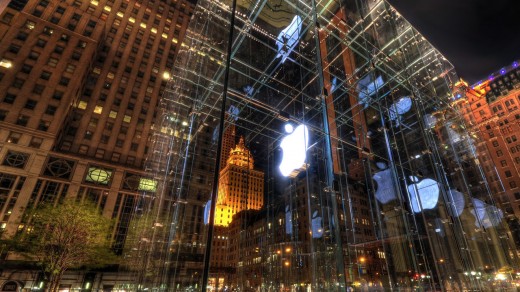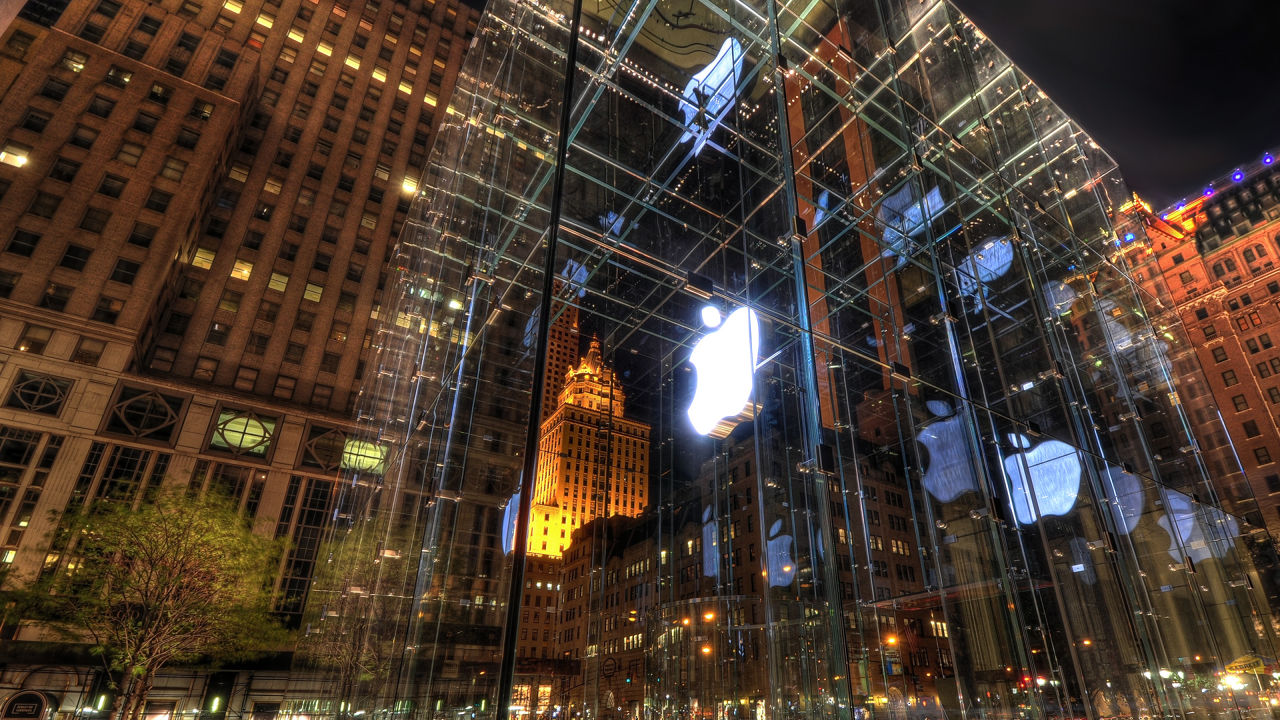Why Apple Is Spending $1.9 Billion To Open Data Centers In Denmark And Ireland
Apple follows Microsoft and Google by opening data centers in Europe. Whether that’s NSA-motivated is unclear.
Apple said Monday that it is investing $1.9 billion to open data centers in Denmark and Ireland, according to the AFP. It is a move likely to comfort European politicians and security industry insiders who have criticized the U.S. National Security Agency for poring over European citizens’ data held in U.S. facilities. Until now, Apple has stored user data in centers in California, Oregon, and North Carolina.
Apple is touting the usefulness of the new facilities to directly support its 18,300 European employees and indirectly support the 672,000 jobs of folks who make and build apps for its devices. Data centers, which contain rows and rows of servers meticulously cooled by massive, industrial climate-controlling infrastructure, are where your digital data lives.
Other tech titans have preceded Apple by building data centers in Europe. With Microsoft notably fighting U.S. government requests for data held on foreign servers, it is unclear just how legally safe that data is from NSA incursion. While Microsoft and Google have been frosty to the U.S. government’s insistence that they share data, Apple has walked a tightrope by partnering with the government for Apple Pay services while ardently stumping for the preservation of user privacy and data security. In a speech earlier this month at the White House Security Summit, Apple CEO Tim Cook said:
“When it comes to the rights of customers and citizens, we’re all talking about the same people. People have entrusted us with their most personal and precious information and we owe them nothing less than the best protections we can possibly provide by harnessing the technology at our disposal. We must get this right. History has shown us that sacrificing our right to privacy can have dire consequences.”
Apple, which primarily makes money by selling products to consumers, might not have as great a vested interest in using and selling data as companies like Facebook, which primarily makes money by selling advertising. But Apple is wise to get ahead of the issue by holding data regionally as European countries clamor to get their citizens’ data away from the U.S.
Apple follows Microsoft and Google in opening a data center in Ireland. But Apple has also followed Google to Northern Europe with the new location in Denmark (Google has data centers in nearby Belgium and The Netherlands). Google, Amazon, and IBM are also planning to open additional data centers in Europe in an attempt to get ahead of upcoming post-Snowden privacy laws that will require European users’ data to be stored on the continent, The Wall Street Journal reports. But Northern Europe’s moderate-to-cool climate also allows data centers to use “free cooling” that circulates external air into the system to cool server racks, saving money and energy on expensive “chillers” that keep servers from overheating.
As expected, Apple said the European data centers will be powered by 100% renewable energy. Which is important, since always-on, precisely climate-controlled buildings drain tons of energy. In 2013, U.S. data centers consumed 91 billion kilowatt-hours of energy, equivalent to the power output of 34 medium-sized coal power plants. Apple has worked to combat this energy drain by investing in renewable energy, including its most recent big-ticket item: an $850 million solar energy farm in Monterey County, California, designed to produce enough energy for all of Apple’s operations in the state.
Both of Apple’s new data facilities will be 166,000 square feet, bigger than the company’s 109,000-square-foot location in Newark, California, but a third the size of its colossal 500,000-square-foot center in Maiden, North Carolina.
As Wired points out, Apple has been in hot water with the European Commission for allegedly accepting illegal tax breaks. While Apple’s Ireland data center continues the company’s investment in the country, Wired posits that the Denmark location could be an olive branch to show investment to benefit the continent as a whole.
[via AFP]
Fast Company , Read Full Story
(183)














